|
For a long time, it was believed that personalities cannot change, especially after a certain age. There is certainly an element of truth in this. In early Islam, we see that even though the lives of the first generation changed completely after the concept of relying only on Allah (God) became grafted into their being, their essential characteristics stayed the same, which they used to bring about good after their transformation. Although a lot of youth converted early on, perhaps the first convert was an old man, Waraqa Ibn Naufal, the Christian uncle of the Prophet’s (SWAS) wife who was a scholar. In fact, the transformations that took place in the personalities of the Companions (RA) of the Prophet (SWAS), have no precedence in history, for perhaps there can be since that time. That transformation of a whole generation was a turning point for human civilization (without any exaggeration). So what was so special about that period that transformed whole societies into the best version of themselves? What made them passionate about personal reform, that they became ready to work on themselves with full dedication, no matter what the consequences? The simple answer to these questions is the effect of the statement which they pronounced to enter Islam, i.e. the kalimah, that they will not worship anything/anyone except Allah (God) and take Muhammad (SWAS) as their role model. The key to personality transformation is not to rely on people. Yes, we respect people, and actively listen to everyone, but we rely on only Allah (God) to choose what we implement in our lives or not. When a person becomes completely dependent on Allah (God) and independent of people, they will do everything to change their flaws, since their final status in this world is irrelevant to them anymore. Of course, those around them seldom tell them that. Rather, many may offer help in areas, even when the person might manage perfectly fine. So one of the key characteristics of transforming personality is learning to be assertive about what we want based on the program of development we set for ourselves and when we communicate with others we can set boundaries in terms of what they do and they are bound to respect them. Even if the most knowledgeable person in the world advises us, we need to listen very carefully and think about it well, but ultimately, we decide what is right for our personal development after taking divine counsel. After Allah (God), we know ourselves and our situation the best, and though people do give good advice and we should pick up our faults from them but we should realize that everyone but Allah has their self-interest at the back of their mind. So deeply knowing and relating to the names and attributes of Allah (God), makes us reliant on Him completely, rather than being impressed by a lesser version of those attributes in Allah’s creation. Only when we are able to do this can we learn to fly with our personal development. Without this, one “advisor” might advise us something and another might advise us the opposite, so without having Allah (God) as a bedrock to rely on and the touchstone to decide on, we can never develop. We should never let anyone “control” us as they might judge us based on what we wrote 10 years ago. Although there are more than 100 names and attributes of Allah (God) mentioned in the Quran, some of which the scholars disagree about, we need to think deeply about how they relate to our situation and try to internalize them, so that our dependence on Allah (God) becomes complete in each of the aspects of His Being. When we let many people interfere in our privacy and we become stressed out because we chose to give people our peace of mind, we should realize that Allah (God) is AsSalaam (the Source of Peace). We should not try to seek peace with people instead no matter what they seem to promise us. When we start expecting things from people instead of Al Kareem (the Most Generous), then we risk not being enriched by Him. When we start obeying people blindly instead of Al Malik, then they end up controlling us. When we rely on people to raise our faith that Al Mu’min (the Protector of Faith), then we risk losing it altogether. When we expect praise and honor from our parents and society instead of Al Mu’izz (the Giver of Honor), then we are disgraced… In the privacy of one’s home, sometimes we want to revise something in depth that is taught in grade 3. Perhaps, in our moment of weakness, we need to. I think we should be able to do that, without global repercussions by those diagnosing us based on the information they project from 10+ years ago. It is not difficult to relate to all the names and attributes, especially if someone is undergoing transformation. All that is needed is to spend some time to see which of these we need most in terms of priority to brush up on. If we leave our reform in the hands of others, we can never develop. Yes, we learn much from our teachers, spouses, courses, etc. but unless we proactively set boundaries and control our personal development, we will only slide. When our relationship with Allah (God) is strong, we are not dependent on his creation, so the best way to develop is not to depend on anybody. If we depend on people they would make us what they want us to be, not what we want to be. RESPECTING HEALTHY BOUNDARY I would like to use this opportunity to assert to everyone who is encroaching on my privacy, to stop doing so, as this is not an ethical boundary for interacting with anyone. Although I appreciate feedback and implement much, there is a possibility that my neutral action/inaction might be judged negatively just because people who chose to observe me illegally in my residence can never understand the full context, just like Khidr and Musa’s (Moses) (AS) story in Surah Al Kahf of the Quran. If we care too much about people’s perceptions of us, we cannot achieve anything as they diminish our strengths and exaggerate our weaknesses. It has a negative effect on my actions in terms of sincerity and I am not able to do what I want to. So do remove the spyware from all my devices. Thank you.
0 Comments
Even before the advent of Islam, one of the few things that the Arabs were known for was their eloquence. The isolation in the desert ensured that it stayed unadulterated from other linguistic influences which was not always possible in the towns and cities. It was considered part of a child's education that he grew up in the countryside with the beduins absorbing the inflections and nuances of the tongue at an early age.
It is the Sunnah (natural way of doing things) of God that He challenges a people in a an area of specialization which they consider themselves masters of. Hence, He showed the people of Moses (AS) miracles in magic as they were famous for magic. He showed the people of Jesus (AS) miracles in medicine as they excelled in medicine of their time. And He challenged the Arabs through eloquence, viz the eloquence of the Quran by asking them to produce even a few comparable verses. So many Companions of the Prophet (RA) accepted the new way of natural living just by listening to the richness of God's speech, testifying that it cannot be man-made. It is interesting to note that God chose language as His everlasting miracle to invite mankind to the natural way of life, as words affect the heart like nothing else. From the ears, the message can reach the heart directly. In an experiment conducted on terminally ill patients, Quranic recitation was played regularly for a period of time on the sound system in a hospital ward resulting in observable improvements in the conditions of the patients' well being. The science of Quranic recitation, enables students to recite the Quran the same way it was revealed through Archangel Gabriel (AS). It is important to clarify that originally the word "Quran" meant the actual recitation (speech) and not the holy book that many take it to be nowadays. By reciting the Quran with proper recitation i.e. falling back on the original pattern of recitation, a believer can experience special feelings of spiritual high that go hand in hand with the words they articulate. This feeling can penetrate the heart of the reciter and the listener (to a somewhat lesser extent), causing truth and wisdom to become part of their inner being. It is one of the ways of increasing one's faith (spiritual wellbeing). By knowing a thousand or so words one can understand the majority of Quranic vocabulary as the same words are constantly repeated. It is easier for some non-Arabs whose native languages have historically been impacted by Arabic, e.g. Farsi, Turkish, Kurdish, Pushtu, Urdu, Bengali, Bahasa, Somali, Berber, Swahili, Hausa, Spanish, Portuguese, Italian, Maltese, etc. and thus share a lot of common words. Arabic grammar is one of the most logical of language grammars. Learning it is like learning a computer programming language. Once we learn the patterns of the verbs in past, present and imperative form in both active and passive cases, we can recognize new verbs in context, together with their pronouns. All words in Arabic are based on root letters (often 3 letters per word). There are different patterns which use the same root letters to derive multiple words from. Once we know the root letters and the pattern we can conclude the meaning of the word. Imagine reciting God's own speech in the way they were revealed while understanding what they mean. With a little effort this is an achievable goal for anyone. God has made sure that the language of the Quran is superlative in its eloquence, effect, and ease of learning, because He wants to guide all of us to achieve the highest purpose for which we were created. Let's change ourselves, to change the world! Lucid Eloquence Islam is an Arabic word which literally means submission of one’s free will to the Will of God. It is known as Ad Deeenul Fitra (the natural way of life). Islam is to man what Maxwell’s equations are for electromagnetism, or what Kepler’s laws are for planetary motion. It is the natural law of mankind. By worshiping the One God, we are divinely inspired to make correct decisions through inspiration from Him, while acting according to divinely prescribed behavior taught by messengers and prophets sent by God, the last of whom was Prophet Muhammad (SWAS) who was sent to teach the final version of ideal behavior to all of humanity.
When we live a clean life inside and out and follow the natural way in the pure thought patterns in our intentions, and our actions and we are not impressed by anyone or anything other than the One God, rather we are awed by His Majesty and Power in controlling the entire universe and us, we have no recourse by to fall in prostration contemplating on His Might. Once we realize that there is no other person, thing, concept, or entity to rely on than Him, we start worshiping Him alone. He guides us without seeking anyone’s help through instinct, and epiphanies, by making all positive forces in the universe favor what we aspire to do because we are doing it in pure sincerity for His pleasure alone, to help bring humanity from darkness to light. The only creature (except for genies) who have free will, will lovingly and willingly use that free will to either live unnaturally or naturally, make the choice of natural living, removing oppression from their own souls, their communities, their environment, and the planet. It does not matter if we develop the best technologies in the world to address our looming problems, including carbonization, unless we fix ourselves first, despite the amount of capital we throw at them, we will not be able to solve them satisfactorily. Each of the world’s major religious traditions were from the same natural way of life that was taught through divine scriptures like the scrolls through Abraham, psalms through David, Torah through Moses, Gospel through Jesus, Quran through Muhammed, and other scriptures that might not be mentioned in our sources that may have been sent to the global population living outside the Middle East. All religions help in spirituality, but there is the aspect of being inspired by One Source which is strictly not there anymore due to historical distortions that aggregated over the years. Today, perhaps only Judaism and Islam are truly monotheistic. Unfortunately, the fact that the Children of Israel were favored by God historically for guidance through the sending of so many prophets (some of whom were Jacob, Joseph, David, Solomon, Zakariah, John the Baptist, and Jesus) we find that Judaism today has become an exclusive religion. By its own definition, it is not for the rest of humanity. In contrast, Islam is the same religion prescribed for Adam when he descended on the earth from Paradise, Noah when he preached to his nation, Jacob who taught it to his children, Joseph through which he could solve the greatest problem in Egypt, David through which he could establish it in Canaan, Solomon through which he could rule by God’s law over vast areas subjugating natural forces, Jesus through which he could heal the leper, restore sight to the blind, and bring back the dead to life by God’s permission, and Muhammad (SWAS) through which (without any exaggeration) he became the best of creation. (https://en.m.wikipedia.org/wiki/The_100:_A_Ranking_of_the_Most_Influential_Persons_in_History) The Quran mentions about 25 messengers and prophets by name (mostly Biblical and ancient Arabian) but in some accounts of Prophet Muhammed (SWAS) there can be about a total of 124,000 who might have been sent to all pockets of civilization, e.g. African, Native American, Aboriginal, Chinese, European, Indian, and Oceanian. Thus the natural way of life was prescribed to each ancient civilization through their human role models who were to emulate (but not to take as their god), and perhaps a scripture so that everyone could willingly live in peace with themselves, their communities, their environments, and their planet. We still find remnants of natural living in the very tiny pockets of aboriginal people living integrated with nature, isolated from modernity. Although the natural way of life has been the same throughout humanity, if humanity chose it for themselves, i.e. worship only the One God, while following behavior exemplified by the prophets and messengers, Nevertheless, the natural law has changed from time to time and community to community throughout history, until the final natural law was prescribed to all of humanity through Prophet Muhammed (SWAS). Today, Islam is the only divine religion whose sources are still authentic and intact. In fact, it was the corruption in the sources of past religious traditions to justify new dogmas introduced by the custodians of those religious traditions that caused them to deviate from natural living. Islamic principles are based on mainly two divine sources. The first is the Quran which is the actual speech of God. The original was not in a written form but it was actual words, a recitation that was memorized and later compiled in book form. The second is what Prophet Muhammed (SWAS) taught in terms of his behavior and words. This information is extensively recorded, verified, and carefully graded so that it is very obvious what is authentic and what is not. The third source of Islamic law is consensus (ijmaa) of Islamic scholars, in which issues that do not have clear solutions in the Quran and Prophetic practice and are resolved through the consensus of scholars. The fourth source of Islamic law is analogous reasoning (qiyaas) in which conclusions on an issue are derived by studying and applying the same methodology of resolving a similar issue in Islamic law. Some of the guidelines used to make Islamic laws include what is good in terms of public interest in a matter, the opinion of the Qadhi (Islamic judge), the practices of early Muslim generations, as well as the local customs of where the law is being applied. A combination of all these together makes a law that is very dynamic and constantly growing to fulfill needs completely. Dr. Muhammad Hamidullah was a scholar of Islam and a prolific academic author.. As a polymath with competence in 22 languages, his dozens of books and hundreds of articles on Islamic science appeared in several languages. He was from born in Hyderabad Deccan, and hails from a family of scholars. He earned his BA, LLB and MA at Osmania University. He travelled to Germany and was awarded PhD in Philosophy, while in France he studied his second doctorate in Literature.
Dr. Hamidullah was the first Muslim to properly translate the Quran into French from the perspective of a believer (Le Saint Coran). Previous translations were from agnostic orientalists which presented a distorted and false perspective of the Quran. As a sincere spiritually practicing Muslim academic par excellance, he had two PhD degrees — one from Germany in philosophy and another in Literature from Sorbonne University in Paris. While studying in Paris, his homeland, Hyderabad, was annexed by the Republic of India, making him a refugee in France. After his education he went to Pakistan but returned to Paris after he did not find the intellectual environment there that he was looking for. In Paris, he lived in a small one bedroom apartment engrossed in studies. He wrote more than 100 books on Islam in English, French, German, Arabic and Urdu. Dr. Hamidullah devoted his whole life to scholarship and did not marry. He received the highest civilian medal of honour, the Sitara-e-Imtiaz by President Ziaul Haq of Pakistan. donating all the prize money as well as the royalties from his books to Islamic intellectual research activities. We do not know much about him perhaps because he did not lead a religious group as is usually the case. Rather, his focus was only on research, academic, and scholarly activities. In terms of presentation, he looked like a very common “Indian” in Paris, yet at age 84, he was learning Thai! He passed away one morning after Fajr and was a great example of modern Islamic scholarship for the modern world. Many well intentioned Muslims are put off from practising their religion, after observing the mentality and condition of many practising Muslims around them. They say, “if this is Islam, we do not want it”!
Today, those people with true knowledge are very few and they are leaving us very fast. It is only natural that such people preach with a certain specific style, emphasizing aspects of their specialization. Their teachings are a product of their cumulative educational and practical experiences that they have acquired throughout their lifetimes. It is important to realize that their teachings represent only an aspect of the infinite Truth. They should not be taken as a touchstone of ultimate Truth -- a mistake often committed by their overzealous followers. Just as going through a secular education system involves studying a diversity of subjects through different professors specialized in their specific sub-fields of knowledge, people should realize that seeking Islamic knowledge is a lifetime endeavor in which one learns different aspects of the religion from its specialists. One scholar might be among the best in one or two of a spectrum of Islamic subjects like Aqeeda (belief), Arabic, Uloom ul Quran (Quranic Sciences),Tafsir (Exegesis), Uloom ul Hadith (Sciences of the Sayings of the Prophet), Fiqh Jurisprudence), Usul ul Fiqh (Principles of Jurisprudence), Seerah (Life of the Prophet) Tasawwuf (Purification of the Soul), Comparative Religion, Escatology, etc. It is important for a true seeker to keep learning from different specialists and not to stop at one teacher, to bring about real change in themselves and the world. Today this love of learning, for the most part, has been taken away from most of the Muslim world and we are left with ignorant Muslim masses, who are incapable of or disinterested in continually improving their condition. Hence they resort to blindly following a particular preacher. They dress and behave exactly like their teacher. They tend to listen to only his lectures and are willing to fight others who may not agree with their teacher's opinion on a subject which Islamic scholars have agreed to have a difference of opinion. When you sit with them, there is tremendous pressure from them to conform. To many of them it does not matter if you are continuously learning. As long as you are conforming to external appearances it is good enough. For many followers, learning comes to a screeching halt when their teacher passes away, as was the case recently, inPakistani context, with Dr Israr Ahmed or Maulana Abu Ala Maududi in 1979. Their books, speeches and ideas remain the only static sources of education for their followers. Others from their group just keep adding explanations to the original ideas these thinkers presented in the past. In most cases, the members of a particular group might join primarily to fulfill their individual social needs, and only God knows what is hidden in our hearts. Some may do it to get access to people of influence for personal favors like social protection, social advancement, good job, business contracts, admission to institutions like schools, universities, or clubs. While there are those who do not have such needs but might do so as to practise their leadership and management skills. To most such people, learning is a chore, which is mostly relegated to whatever their leader/teacher has learned. For most group members, it might be something which they need to pay lip service to and role play just to keep their membership. A group with most of it membership consisting of individuals with such hypocritical attitudes (and God knows the reality best) is really doing a disservice to Islam and actually puting off sincere seekers of Truth who may come their way. Those considering practising their religion should try not to be put off by the pressure to join one group or the other, but rather learn from each that aspect of the religion which they have specialized in. It is important to keep learning and keep moving, otherwise we may end up becoming just poor copies of the teacher who we take as our ultimate living ideal in life. References يٰۤـاَيُّهَا الَّذِيۡنَ اٰمَنُوۡا لَا تَدۡخُلُوۡا بُيُوۡتًا غَيۡرَ بُيُوۡتِكُمۡ حَتّٰى تَسۡتَاۡنِسُوۡا وَتُسَلِّمُوۡا عَلٰٓى اَهۡلِهَا ؕ ذٰ لِكُمۡخَيۡرٌ لَّـكُمۡ لَعَلَّكُمۡ تَذَكَّرُوۡنَ Quran (24:27) Believers! Enter not houses other than your own houses until you have obtained the permission of the inmates of those houses and have greeted them with peace. This is better for you. It is expected that you will observe this. فَاِنۡ لَّمۡ تَجِدُوۡا فِيۡهَاۤ اَحَدًا فَلَا تَدۡخُلُوۡهَا حَتّٰى يُؤۡذَنَ لَـكُمۡ ۚ وَاِنۡ قِيۡلَ لَـكُمُ ارۡجِعُوۡا فَارۡجِعُوۡا ۚ هُوَ اَزۡكٰىلَـكُمۡ ؕ وَاللّٰهُ بِمَا تَعۡمَلُوۡنَ عَلِيۡمٌ Quran (24:28) Then if you find no one in them, do not enter until you have been given permission (to enter). And if you are told to go back, then do go back. This is a purer way for you. Allah knows all what you do. Sa'd ibn 'Ubada (RA) said. "A man stood facing the door of the Prophet (RA) while asking permission to enter. The Prophet (SWAS) said, "Turn this way,"turning him away and ordering him to move further from the door, saying, "Asking permission is prescribed to prevent intrusion." Abu Huraira (RA): "When one looks inside of the home of people without their permission, it becomes permissible for them to gouge out his eye." (Muslim) "Were a man to look into your home/private property wiithout your permission, and were you to pelt him with pebbles and knock out his eye, there would be no sin upon you." (Bukhari & Muslim) Imam Bukhari (RA) narrated that: Ammar ibn Sa'id al-Tujibi reported that Umar Ibn al-Khattab said, "Whoever fills his eyes with the sight of the interior of a house before being permitted is a wrongdoer". Bukhari, Muslim and others narrated that: Sahl ibn Sa'd (RA) said that a man peeked through a hole into the room of the Prophet (SWAS) while he was scratching his head with a small pitchfork. When the Prophet (SWAS) saw the intruder he told him, "Had I known you were looking I would have poked your eye! Asking permission was prescribed to prevent intrusion." Anas Ibn Maalik (RA) reported that a man looked through a hole into one of the Prophet (RA) apartments, and so the Prophet (RA) stood up to go to him with an arrowhead(s). It was as if I saw the Messenger of Allah (SWAS) try to take him by surprise in order to stab him." A Message to Our Respected Islamic Organizations This blog post is specific for Muslim organizations and I although I do not usually name, I would particularly want to name Yaqeen Institute, Al Maghrib, DiscoverU, and others . By God’s favour upon on us we have excellent scholars among them who are doing great work and we benefit from their understanding of Islamic principles as we apply them in what we work on. So we are humble and keep working on our personal deficiencies and understanding of our work by addressing them using the divine knowledge while working on our goals. Nevertheless, purchasing and using course materials from such wonderful resources does not mean that we want them to manage or take over our work. Perhaps there has ben a misunderstanding, but never asked them for such help which they themselves saw fit. I would like to state for the record, that since Lucid Eloquence’s mission was made public, I have a very strong feeling my devices have been hacked/controlled and whatever work I have done or the real-time audio/video of what I do in my house has been broadcast globally without my permission. There has been a very deliberate campaign to hinder, change, and ultimately stop me forcibly by controlling my devices remotely. I would like the authorities to take note and stop whoever is doing this and demand full privacy that is my right under the law. I might be wrong and if so I apologize making such a big accusation. Yesterday, I could not continue my work, at a key juncture in my workflow, my devices were remotely blocked, after which Yaqeen Institute immediately sent an email out titled “Build the world we all want to live in” asking for public participation based on the ideas I was developing which they and others were observing and influencing without my permission as what I am doing is being broadcasted globally. I have privately stated to them in writing that I do not wish to work under them, nor Al Maghrib or anyone else. I have got no replies from them. It is not anyone’s concern how quickly or slowly Lucid Eloquence works, when it chooses to take a break from what it does, if it chooses to refine or modify its approach, who it chooses to partner with, who I personally decide to marry or if I marry at all. Let us not consider the legal implications of this intrusion of privacy and attempt to "control" my work and me, just from an Islamic ethics point of view, even though Lucid Eloquence is working not for its own ego but the pleasure of God, no Islamic organization or individuals have the right to spy on, use and propagate its ideas as their own with Lucid Eloquence's explicit written permission. KINDLY KEEP OUT. It does not matter if someone is not seen as being as presentable as you would like them to be. Dr. Zakir Naik and Shaykh Ahmed Deedat had heavy ancestral “Indian” accents. Shaykh Hussein Yi’s Chinese ancestry is obvious in the way he comes across. We do not need to modify those aspects of our personal presentation which come naturally, if we are comfortable with who we are and what we want to give to the world, especially when the world's interaction with us is through our written word. We do not have to fit the ideal appearance of modernity which someone else feels is right, in order to feel complete if we are sure what it is we want to give to the world. To summarize, I would like the Islamic organizations to stop, reflect and adopt a wiser strategy with Lucid Eloquence. We do not want any interference/control/influence from Muslim nor any non-Muslim organization and individuals, but like Prophet Muhammad (SWAS), we will seek to cooperate with everyone who wants to improve the world irrespective of religious belief, based on common interests, on the terms we feel fit. I apologize if anyone found these words to be harsh, but this message needed to be conveyed directly and publicly. May Allah guide us all. PS: Lucid Eloquence devices are still hacked and this should stop immediately. And now the blog post....
Why Can’t We Muslims Think? We are often criticized for not contributing intellectually to the modern world. Rather we are avid consumers of ideas (and even stealers of them, in some cases), products and services provided by others. We fail to contribute despite the sheer weight of our numbers. What are the factors that make it difficult for us to innovate holistically for the greater good of humanity while staying true to our own paradigm of reality? To consider this issue, we need to understand the legacy of a series of Muslim capitulations since the failure of the Siege of Vienna, which eventually relegated us and thus our worldview as the non dominant global paradigm. Colonialism and the New World Order consolidated this position. It was not the deficiency in the Islamic worldview which led to our defeat but rather its lack of understanding and hence the laxity in its implementation among Muslims, which weakened them. This fact is evident when we consider that subsequent Islamic revival movements, in different parts of the world, were successful when they adhered to this pristine worldview, even if they were short-lived. The truth is that Muslim groups practicing Islam properly from the sources continue to exist in one part of the world or another till today. Thus, it is no wonder that today we seem so backwards in terms of education and its practice. Generally, our current education system is based on rote memorization. Our current education system does not teach us how to think rather it develops students to only pass exams. Studying is seldom equated with enlightenment and development of the thought process. Rather it is meant to provide jobs, socio-economic uplift and gender equality. The most prevalent concept we espouse is how to “look” better than others in order to “subjugate/control/manage” others for which we cite the Prophetic model to essentially to follow the global masses into the lizard's hole. I request you to consciously ask yourself now, as you read this, if this is the real reason of loving and adopting the Prophet (SWAS). Does the Lamborghini we own makes us better than others, or our citizenship, or our clothes, or the neighborhood we live in, or our accents, or our appearances? The truth is that we are still living out our colonial legacy when we use the sayings such as that "the favors of God should be visible on us" to justify the material race which the global masses are unfortunately engaged in blindly without thought. Unfortunately, our approach to deal with others who are not in our "tribe" has not, for the most part, developed essentially any more than that of the marauding hordes of ancient Arabia, it may seem acceptable, If someone like my 17 year old behaves like this out of immaturity, but unfortunately this sickness is a prevalent thought pattern among a majority of very practicing Muslims. Are we not witnesses to mankind calling them to a better life? Then how are we using something as precious as the Prophetic example for something so crass like chasing the world by following them? Since the Islamic worldview permeates all aspects of our life, the average Muslim is confused. On the one hand they attempt to stay faithful to Islamic values, but on the other hand they realize that the modern world is based on a secular worldview which is in many ways is diametrically opposed to Islamic (natural) way of thinking. Thus the average contemporary Muslim suffers from conflicting juxtaposed personal worldview which makes it impossible to develop any original thoughts as they do not have any sound personal system of intellectual reference to base it on. Thus, Muslims, in general, relegate thinking to other civilizations and just focus on personal socio-economic improvement, while trying to “look better” in the eyes of others trying to "subjugate/control/manage" those outside their own "group". Wearing fancy clothes and driving expensive cars does not make us better or worse than anyone if we are sure of ourselves. While they continue this useless struggle "to control each other" thinking that they are following the Prophetic way, the global policies and decisions are made by a part of humanity who are hungry for natural solutions which can only come from the a natural paradigm of reality, i.e. ad deen al fitra. Unfortunately, we have to admit that we have the hallmark of an enslaved mentality which can only instinctively do what it is habituated in doing and incapable of intellectual breakthroughs. Even when such people become professors or other intellectuals professionally, often they may only do it as a means to earn a paycheck, seeking to be engaged in the apparent process of innovation based on established theories in their fields - never actually making an intellectual breakthrough themselves, writing one useless research paper after another just fulfilling their job obligation. Many of us just use our professional prestige, social status, and accumulated/grown wealth to want to "subjugate/control/manage" others and they believe that this is the essentially what it means to "follow Prophet Muhammad (SWAS)". Thus, the owner of many gas stations, for example, who might have "made it" in terms of being successful in the worldly sense feels they have the right to set policies for the development of the Muslim community because they are "seen" to be a leader following Muhammad (SWAS)'s legacy. Of course there are many exceptions to this generalization. On one end of the spectrum of Muslim society are people who are only entrenched in the traditional worldview. Among them, there are some whose sources and methodologies are not Islamic but perhaps cultural. Also among them are many who do not understand how the modern world functions. This leaves a very few practicing Muslim intellectuals who have a pure and monolithic mental frame of thought to impact global thought. On the other end of the spectrum of Muslim society are the secularist who have all but completely discarded the Islamic worldview. They have freed themselves of the mental confusion and can make progress in intellectual endeavors completely immersed in secular values and not shackled by contradicting the Islamic paradigm. Thus, to innovate, such individuals from Muslims societies are forced to leave the realm of Islam. In order for Muslims to really think and contribute to solve global issues using their own paradigm of thought, they need to simultaneously and continuously seek Islamic and worldly education with the right intentions. These include holistic learning, deep contemplation, self-reform, doing legacy building projects and teaching others. Those who are trying to do this sincerely should mutually support each other or at least try not to deliberately break / pull each other down unethically for what might appear as selfish reasons, because they think that this is part of Prophetic practice . It we are driven to do good, we can try to exert our knowledge and skills to solve global problems which we are best capable of without maligning/preying on the weaknesses of those who are trying to do this, just because they are not within our "group". To me, it seems that this can be a better way to follow the example of the Prophet Muhammad (SWAS). And Allah knows better. Our daily routine defines who we are, what we think and what we will do in the future. Often we grow up with a societal narrative as to what we are supposed to accomplish in our lives. For most of us, it is what our parents, media, friends, community, school, university, workplace and country has ingrained in our thinking. As we progress in life the stereotypical societal expectations are enhanced and reinforced, without us ever taking time out to think why we are doing what we are doing in our lives.
Some consider this a modern phenomenon, but the truth of the matter is that it has been going on throughout history. Many great men came to a point in their lives where they questioned the prevalent mores, values, beliefs and customs of their societies. The Prophet (SWAS) took time out to meditate in the wilderness before divine revelation descended upon him. Even those who have been trained into the religious sciences and have accomplished great stature, come to a point where they seek to understand basic assumptions in life. This happened to Algazel (Imam Al Ghazzali) as well. As the Principal of the top center of learning of his time – the Nizamiyya of Baghdad -- he had reached the pinnacle of his professional career. He had mastered, at least externally, what was known of the religious sciences. He was an eloquent orator and an articulate debater of religious doctrine. Nevertheless, he experienced a time when he was dumbfounded at the essential meaning and purpose of his life. He did not understand why he was doing what he was doing. After extended periods of confusion and internal turmoil he took the bold decision to give up all he had – his career, position, wealth, reputation, family, city, etc. He set out to live a life of a wandering ascetic. He spent years in ignominy undergoing deep contemplation, remembrance (of God), spiritual exercises, etc. This experience transformed him. He used the spiritual experiences he underwent to document the inner insights from the meaning of the external Islamic Law that he was trained in his youth. After years of solitude, he emerged into society to teach the kernels of truths he had discovered -- some of which he documented in his Magnum Opum, Ihyaa Uloom Uddeen (The Revival of the Religious Sciences). His explanation of Islam transformed it from rituals of external fossilized customs to a meaningful transformative internal agent for positive change. Modern professors take a sabbatical from their daily research and teaching. This has shown to add essential depth and meaning in their vision. Modern day Muslims are eager to excel in their education and career. Have they considered taking a sabbatical from their daily routine to enhance their perspective of Reality? As witnesses onto humanity, Muslims have higher goals than to just earn a living. To play their part out sincerely, they need a deeper understanding of the world and this life than the common people of other faiths. Ideal periods to achieve this is at key crossroads in life: after graduating from high school or university, after establishing ourselves in our career, after marriage, etc. It is important that one tries to broaden our understanding at a stage in life which would allow us to contribute in life later on. Most people undergo such changes after retirement only to prepare for death. Freeing oneself of the luxuries of life makes one independent of many needs which chains many people into inaction and a compromised life. Have we tried living without our smart phone, the internet, a soft bed, rich food, television, support from family and friends? Someone who undergoes such experiences does not fear deprivation. Their eyes are always fixed on more meaningful goals and they are able to sustain almost all circumstances in life. The only thing that should not be compromised is their ability to practice the natural way of life, a simple but clean environment and access to quality Islamic education. We need a generation of insightful Muslims, like Algazel (Imam Al Ghazzali), who are completely in tune with their religion and also capable of providing insightful solutions to the deficiencies of our modern world. .The world has committed that by 2050 it will be carbon-free while by 2030 it will be half-way there. It is great to have ambitions global goals, but we cannot realise them unless we have a solid strategy, policy, and a fool-proof system of measuring progress. Can we walk the walk?
As a Canadian federal non-profit social enterprise startup, Lucid Eloquence envisions meeting this goal, God willingly. Government bodies, think tanks, and research institutions do not have the nimbleness and motivation that Lucid Eloquence can leverage to help restore our Earth back to its natural state, through targeted proselytisation. At this point in history, we have all the means to achieve this global commitment. What we lack is the ability to convince key decision makers in 20 most industrial carbon producing nations to use the means of decarbonising the 4 main sectors of their economies that release most carbon in the environment. The environment gets most carbon from burning fossil fuel through which electricity is produced for industrial and domestic consumption. It is also released as by products of industrial activity, transportation, and from buildings. If these 20 policy makers are convinced or proselytised to accept the importance and priority of restoring themselves and their environment to the natural way of life, they can adopt new technologies like green hydrogen that can achieve the global zero-carbon dream. Is it fair that the misunderstanding of 20 individuals is resulting in global climate disruptions the like of which we have never experienced in history. Why should non polluting nations suffer from the follies of a few, when all we need to do is just convince them to do what is good for them as well as the whole planet? The Prophet (ﷺ) said, "The example of the person abiding by God’s orders and limits (or the one who abides by the limits and regulations prescribed by God) in comparison to the one who do wrong and violate God’s limits and orders is like the example of people drawing lots for seats in a boat. Some of them got seats in the upper part while the others in the lower part ; those in the, lower part have to pass by those in the upper one to get water, and that troubled the latter. One of them (i.e. the people in the lower part) took an axe and started making a hole in the bottom of the boat. The people of the upper part came and asked him, (saying), 'What is wrong with you?' He replied, "You have been troubled much by my (coming up to you), and I have to get water.' Now if they prevent him from doing that they will save him and themselves, but if they leave him (to do what he wants), they will destroy him and themselves." By leveraging the most advanced content marketing techniques targeted at the exact personas of these decision makers, Lucid Eloquence is divinely inspired to surgically address the problem of decarbonisation of our Earth to achieve our stated goals within the deadline, God willingly. Lucid Eloquence intends to make concrete measurable plans with milestones to achieve this mission, God willingly, to execute it with best project management practices. We intend to galvanise the global population who are passionate about leaving a legacy by reversing climate change for future generations, God willingly. We are a global non-profit startup, in the sense that we do not identify with any particular group of people but we represent humanity as a whole, who strive to live by the natural laws of the One True God, adopting the best of behaviour as taught by the prophets and messengers He sent to guide mankind — the last one sent to all of humanity, ie Prophet Muhammad (SWAS). We do what we do only for the pleasure of God. Lucid Eloquence invites the global fraternity of man to join hands to restore balance within ourselves and in our environment. |
AuthorWrite something about yourself. No need to be fancy, just an overview. AuthorOzair Khan Archives
August 2023
Categories |
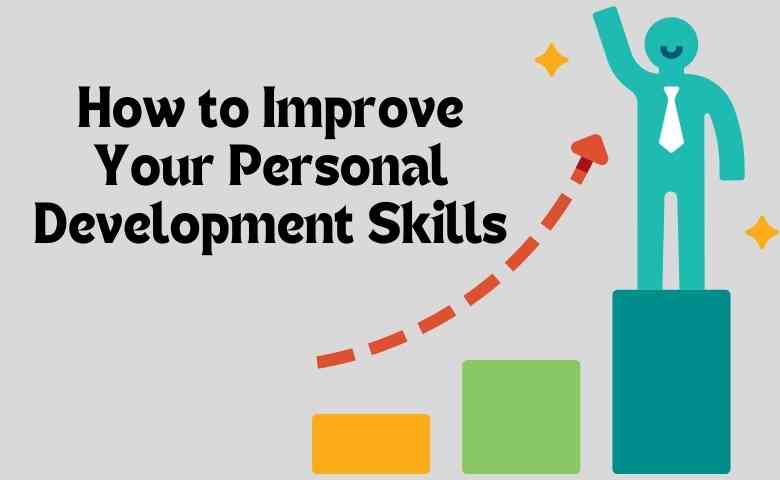
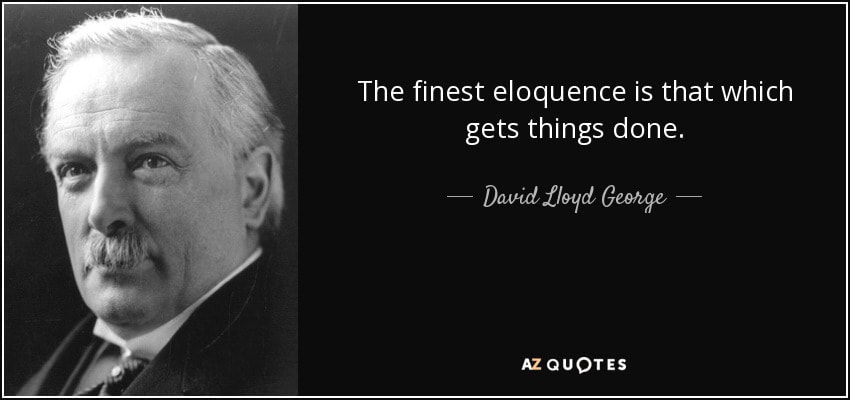
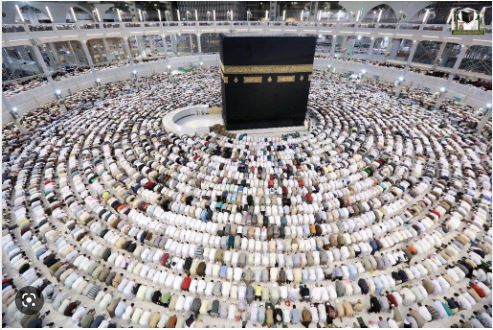
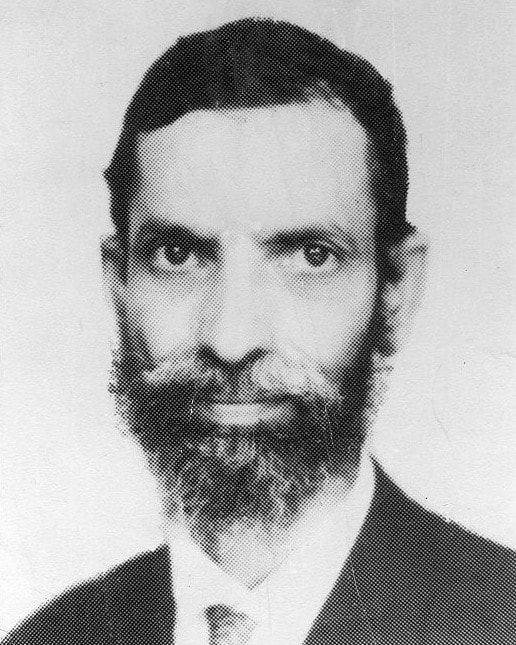


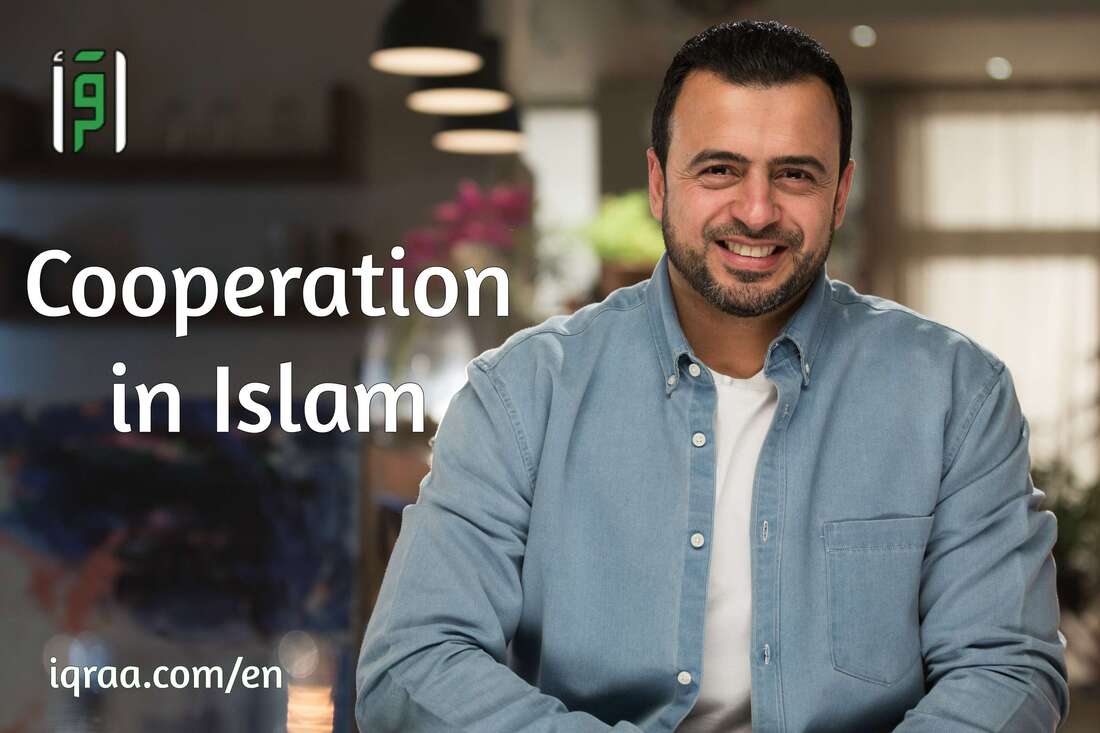


 RSS Feed
RSS Feed